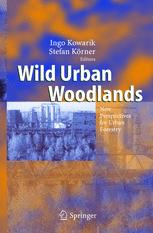

Most ebook files are in PDF format, so you can easily read them using various software such as Foxit Reader or directly on the Google Chrome browser.
Some ebook files are released by publishers in other formats such as .awz, .mobi, .epub, .fb2, etc. You may need to install specific software to read these formats on mobile/PC, such as Calibre.
Please read the tutorial at this link: https://ebookbell.com/faq
We offer FREE conversion to the popular formats you request; however, this may take some time. Therefore, right after payment, please email us, and we will try to provide the service as quickly as possible.
For some exceptional file formats or broken links (if any), please refrain from opening any disputes. Instead, email us first, and we will try to assist within a maximum of 6 hours.
EbookBell Team

5.0
98 reviewsThe outstanding social and ecological roles of urban forests in the growth of cities has become widely known. In many parts of the world, despite or even because of continuing suburbanization, initiatives are being put forth to preserve urban forests, to develop them further and to make them acc- sible to the public. This volume focuses on a particular component of the urban forest - trix – urban wild woodlands. We understand these to be stands of woody plants, within the impact area of cities, whose form is characterized by trees and in which a large leeway for natural processes makes possible a convergence toward wilderness. The wilderness character of these urban woodlands can vary greatly. We differentiate between two kinds of w- derness. The “old wilderness” is the traditional one; it may return slowly to woodland areas when forestry use has been abandoned. The enhancement of wilderness is a task already demanded of urban and peri-urban forestry in many places. This book would like to direct the attention of the reader to a second kind of wilderness, which we call “new wilderness.” This arises on heavily altered urban-industrial areas where abandonment of use makes such change possible. The wild nature of urban abandoned areas was discovered in the 1970s through urban-ecological research. Since then, in a very short time, profound structural changes in industrial countries have led to h- dreds or thousands of hectares in urbanized areas becoming available for natural colonization processes.